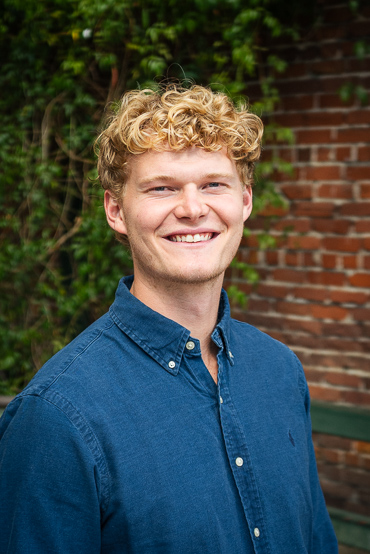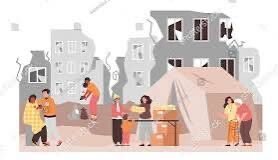The recent wildfires in Los Angeles have left deep scars on our community, both physically and emotionally. Entire neighborhoods have been displaced, families have lost their homes, and the landscape we love has been transformed. But beyond the visible damage, there is an invisible toll—one that lingers in our hearts and minds long after the flames have been extinguished.
As a therapist based in LA, I have witnessed firsthand the devastation these disasters bring. I have sat with individuals in the aftermath of displacement, listened to stories of loss, and even navigated my own experiences with evacuation and uncertainty.
In times of crisis, we are often forced to ask ourselves difficult questions. As I listened to Armchair Expert, I thought Monica Padman summed these difficult questions up beautifully. “Who do I have? What do I need? And sometimes, the answer to those questions feels unbearably heavy.”
If you are struggling, please know this: You are not alone. Healing takes time, and there are compassionate resources available to help you process the emotional and psychological impact of this disaster. Whether you have been directly affected or are supporting someone who has, this guide offers support, understanding, and hope.
Understanding the Psychological Impact of Wildfires
Natural disasters trigger a cascade of emotions, many of which can feel overwhelming and unpredictable. It is normal to experience any combination of the following:
- Acute Stress: Feelings of shock, confusion, and an inability to focus immediately after the event.
- Grief and Loss: Losing your home, your belongings, or your sense of security can feel deeply painful, bringing up feelings of sadness, mourning, and even anger.
- Anxiety and Hypervigilance: The fear of another disaster can make it difficult to relax, trust, or feel safe.
- Trauma and PTSD: Recurring nightmares, flashbacks, or avoidance behaviors may develop in response to the traumatic event.
- Guilt: Many survivors struggle with survivor’s guilt, wondering why they were spared when others lost so much. Remember, grief is not a competition. Your pain is valid, no matter the extent of your losses.
Our brains are wired to protect us in moments of crisis, flooding us with stress hormones to help us survive. But when the danger passes, our nervous systems may struggle to recalibrate. The road to emotional recovery can be long, but acknowledging these feelings is the first step. Be gentle with yourself as your nervous system recovers from the stress.
Wildfires: Immediate Psychological First Aid
It’s difficult to know what to do in the immediate aftermath of a traumatic event. Here are some key ways to support yourself and others:
- Ensure Safety First: If you are comforting someone affected, offer a calm, stable presence. Let them know they are safe.
- Validate Feelings: Instead of offering solutions, listen. Sometimes, simply being heard is the most powerful form of support.
- Offer Practical Help: Small gestures—helping someone find shelter, food, or reconnect with loved ones—can make an enormous difference.
- Encourage Connection: Trauma thrives in isolation. Encourage people to reach out to family, friends, or local support groups.
It’s okay if you don’t have all the answers. Simply showing up with empathy and presence can provide immeasurable comfort.
Long-Term Coping Strategies & Local Resources
Once the immediate crisis has passed, it’s important to focus on long-term healing. Here are some local resources and techniques that may help:
1. Seeking Professional Support in Los Angeles
- Trauma-Focused Therapy: Many LA-based therapists specialize in trauma recovery, offering therapies like EMDR (Eye Movement Desensitization and Reprocessing) or TF-CBT (Trauma-Focused Cognitive Behavioral Therapy).
- Community Counseling Centers: The Los Angeles County Department of Mental Health (LACDMH) provides free or low-cost therapy services. Call their 24/7 Help Line at 1-800-854-7771 for immediate assistance.
- Local Support Groups: Organizations like the California Community Foundation and local faith-based groups offer emotional support and community gatherings for those in need.
2. Mind-Body Healing Techniques
- Mindfulness & Meditation: Consider joining guided classes at InsightLA or The Mindfulness Center for relaxation and stress relief.
- Yoga for Trauma Recovery: Studios like YogaWorks and Modo Yoga offer gentle, trauma-sensitive classes to help reconnect with the body.
- Breathing Exercises: Deep breathing techniques can help regulate the nervous system and bring a sense of calm.
3. Rebuilding Resilience
- Create a New Routine: Establishing even small daily rituals—morning tea, a walk, journaling—can provide a sense of normalcy.
- Focus on Your Strengths: Reflect on past hardships you’ve overcome and remind yourself of your resilience.
- Get Involved in Community Efforts: Rebuilding together fosters a sense of purpose. Consider volunteering with Habitat for Humanity Greater Los Angeles or local relief organizations.
4. Additional Crisis Support
- Disaster Distress Helpline: 1-800-985-5990 (24/7 emotional support)
- LACDMH Crisis Hotline: 1-800-854-7771 (Local LA-based mental health support)
- California Fire Foundation’s SAVE Program: Provides emergency financial assistance to wildfire victims.
- LA Family Housing: Offers shelter and resources for displaced families.
Supporting Children & Teens Through Trauma
Children and teens process disasters differently than adults. They might have different questions about wildfires and not know how to find answers. They may experience fear, withdrawal, behavioral changes, or even physical symptoms (such as stomach aches or trouble sleeping). To support them:
- Provide Reassurance: Let them know they are safe and that you are there for them.
- Maintain Structure: Routines help create a sense of security.
- Encourage Expression: Play, art, and storytelling allow children to process their emotions in a safe way.
- Watch for Signs of Distress: If a child exhibits prolonged sadness, aggression, or regression, consider reaching out to a child therapist. The Los Angeles Unified School District offers mental health support for affected students.
Caring for Caregivers & Supporters
If you’re supporting a loved one through these wildfires, don’t forget to take care of yourself as well. Compassion fatigue is real, and burnout can creep in if you don’t set boundaries.
- Give yourself grace. It’s okay to feel exhausted or overwhelmed.
- Seek your own support. Many LA therapists specialize in counseling for caregivers and first responders.
- Engage in self-care. Whether it’s movement, creative expression, or simply rest—prioritize activities that restore you.
Final Thoughts: You Are Not Alone
Healing as a community amidst these wildfires will not be linear. There will be good days and bad days, moments of strength and moments of exhaustion. But you are not alone in this. Your pain is real, your grief is valid, and there are people who care about you.
If you need support, please don’t hesitate to reach out. Therapy, community connection, and small daily acts of self-care can make all the difference.
Together, as a community, we will rebuild—not just our homes, but our hearts as well.

